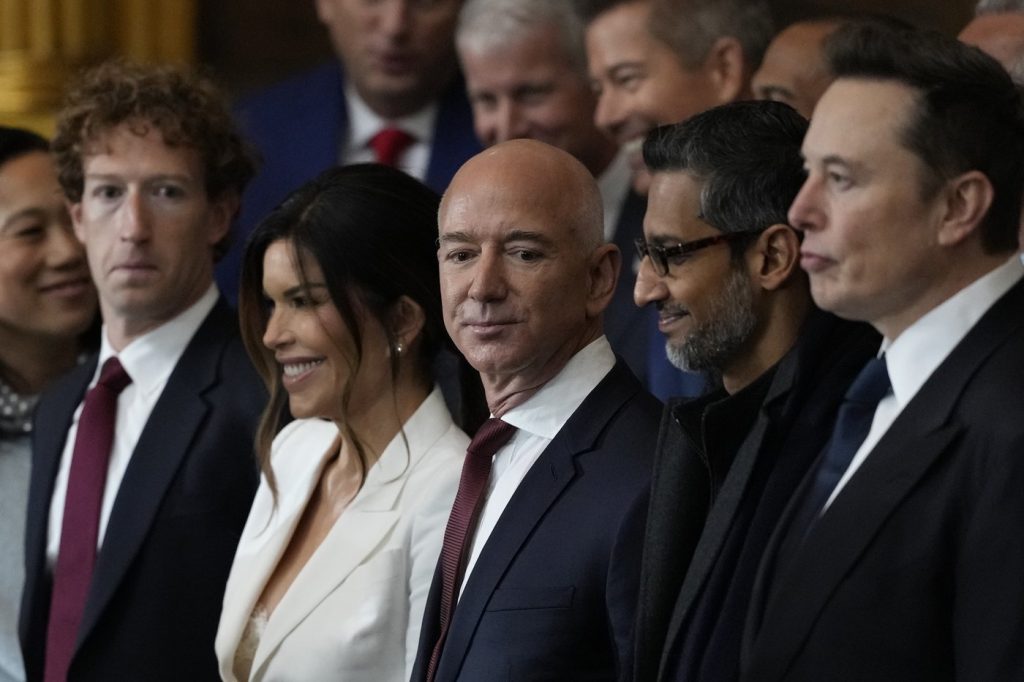On January 20, 2025, during President Donald Trump's inauguration, some of the most exclusive seats at the U.S. Capitol were occupied by powerful tech CEOs, reflecting a significant shift from traditional practices. Typically, these prime spots near the President are reserved for his family, former presidents, and other honored guests. However, in this instance, mega-wealthy tech leaders were front and center, signaling their influential role in the new administration.
Photos captured the tech CEOs interacting with Trump's Cabinet picks, notably Robert F. Kennedy Jr. as health secretary and Marco Rubio as secretary of state. Among the recognizable faces were Meta CEO Mark Zuckerberg and his wife, Priscilla Chan, Amazon CEO Jeff Bezos and his fiancée, Lauren Sánchez, as well as Google CEO Sundar Pichai and Tesla and SpaceX CEO Elon Musk. Musk, noted as the world's wealthiest person, has developed a close advisory relationship with Trump.
Additionally, notable figures present included Apple CEO Tim Cook and TikTok CEO Shou Zi Chew, underscoring the blend of business and politics that characterized the day. Over the years, the influence of billionaires in national politics has grown, with many having supported former Vice President Kamala Harris’s campaign against Trump. In a recent ceremony, then-President Joe Biden awarded billionaire philanthropist George Soros the Presidential Medal of Freedom, highlighting the intertwined relationship between wealth and political power.
The presence of these wealthy individuals at the inauguration not only emphasizes their significance in contemporary politics but also raises questions about the balance of power in the U.S. Biden had previously expressed concerns in his outgoing address, warning that the nation was becoming an "oligarchy" dominated by tech billionaires who wielded considerable influence.
Responding to these criticisms, Trump defiantly undermined Biden's assertions, claiming that the tech executives had shifted their allegiance from the Democrats upon realizing that Biden "didn’t know what the hell he was talking about." Trump asserted that these influential figures had initially backed Biden but had since sided with him, showing a strategic pivot towards Trump’s administration.
While Trump acknowledged receiving significant financial support during his inaugural committee, with Musk contributing over $200 million to his campaign, he claimed that he did not require any financial assistance from the tech titans. Trump insisted, “They’re not going to get anything from me. I don’t need money, but I do want the nation to do well, and they’re smart people, and they create a lot of jobs.” This statement reiterates his focus on economic growth despite the intricate ties to his wealthy supporters.
The events surrounding the inauguration reveal an evolving dynamic in American politics where billionaires play an increasingly visible role, suggesting that their influence is likely to continue shaping the policies and direction of the Trump administration. As the 60th Presidential Inauguration unfolded, it became evident that the amalgamation of wealth and government is becoming a prevailing theme in the United States.










